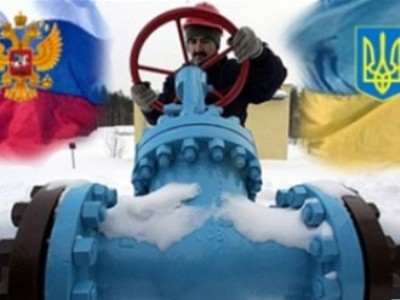Poland and Germany were both initiators and drivers of a New Eastern policy linked to the Eastern neighborhood and Russia/Soviet Union.
Andrei Yahorau: Ukrainian sanctions legalize rules of martial law in allegedly “peaceful” time

The wall being erected at the Russia-Ukraine border won’t stop full-scale Russian aggression; this is a step made against Russia’s “hybrid” war.
On September 10 Ukraine President Petro Poroshenko signed a law on sanctions against the countries-aggressors. And even though Russia isn’t mentioned in the law, it is clear for everyone what country is meant in the document.
The law introduces more than 20 restrictive measures, among which the most painful is the cessation of energy supply delivery. Moscow is warring with Europe through gas, while Kyiv controls its transit, which is no less powerful.
Ukraine has also started constructing a wall at the Russian border — a grand project, one part of it includes a 60-kilometer nonexplosive wall.
How will the taken steps affect the development of Russia-Ukraine war? Why the EU is postponing sanctions against Russia for the third time?
Andrei Yahorau, the Director of Centre for European Transformation, answers the questions of EuroBelarus Information Service.
— Ukraine President Petro Poroshenko signed a law that regulates sanctions against the countries-aggressors. The law introduces sanctions (more than 20 restrictive measures, including the cessation of energy supply delivery) against Russia. Does this step of the official Kyiv represent symbolic act or Ukraine is ready for real actions?
— Ukraine is waging war, but due to a number of reasons it is unwilling to introduce martial law. So a strange situation appears: one the one hand, there is war, and on the other — the laws of the civic time are working. However, Ukraine has to protect itself from the enemy that acts not only outside, but also inside the country; law enforcement officials and army need broader opportunities for actions to suppress anti-state activities, information attacks, diversions, espionage, and so on. The law on sanctions is a certain substitution of the norms of martial law.
— Ukrainian government has drawn up a list of 127 Russian citizens and citizens of other countries who disrupt territorial unity and Ukraine’s independence, and a list of 65 companies mostly from Russia, which fund terrorism and were supporting annexation of Crimea. How efficient might these sanctions be?
— These means of protection are quite strong; however, they are still “mild”. During classical war of the 20th century borders were closed right away, citizens of hostile state were deported from the country, any property of enemies was expropriated, and so on. Now Ukraine is facing something average between a classical war and an inner-state revolt, and that is the reason why we might encounter such strange legislative “oddities” in this war.
— Belarus is not among the countries-aggressors. Does it mean that Ukraine doesn’t see potential threat on the part of the official Minsk?
— Belarus isn’t yet at war with Ukraine, neither openly nor secretly.
— It is now announced about the erection of a wall at the Russia-Ukraine border: one and a half thousand kilometers of trenches, more than 4 thousand blindages, a 60-kilometer nonexplosive barrier. The very fact of construction of such a grand project indicates that Ukraine is preparing for a long-term war. But can the wall stop Russian aggression?
— The wall won’t stop full-scale Russian aggression; this is a step made against Russia’s “hybrid” war. The wall will make it more difficult for the gunmen to reach other border regions. However, it is unclear how Ukrainians are going to build the wall and fight at the same time.
— The EU didn’t introduce new sanctions against Russia on September 10 as it had been earlier announced. What is the reason for that? Is it because Russia threatened to disrupt truce in Donbas in return?
— The delay with introduction of sanctions is connected with the difficulty of making such a decision for the EU; some countries are blocking the sanctions, and this resistance hasn’t been broken yet. But if Russia disrupts truce and is making threats to do so further on, then it will be easier to convince the opponents of the sanctions that tougher measures are required.
Others
-
Uladzimir Matskevich: The sooner the "Union State" is denounced, the better for Belarus
Not only does the “Union State” undermine the establishment of civilized relations with Europe, but it hinders the possibility of normal relations between Belarus and Russia.
-
Uladzimir Matskevich: The regime can no longer control the situation in the country
The authorities are unable to prolong the social contract with the people: there is no way out of the social crisis.
-
Press release of the BNP in connection with the next round of the dialogue in the format of the EU-Belarus Coordination Group
Belarusan National Platform of the Eastern Partnership Civil Society Forum welcomes the dialogue process in the format of the EU-Belarus Coordination Group, the third round of which was held in Minsk on 3-4 April 2017.
-
Hennadiy Maksak: Europe must react adequately to the events in Minsk
A new wave of political repressions should make the EU return to tougher policy towards the Belarusan regime.








Comments
From farewell to a new Eastern policy and towards a new development
Poland and Germany were both initiators and drivers of a New Eastern policy linked to the Eastern neighborhood and Russia/Soviet Union.